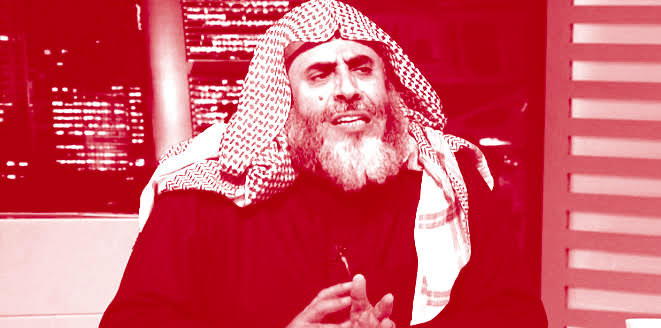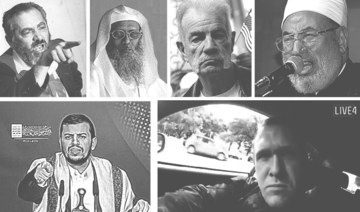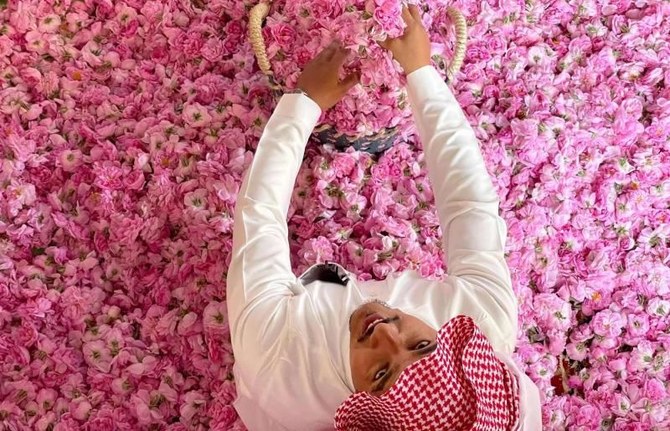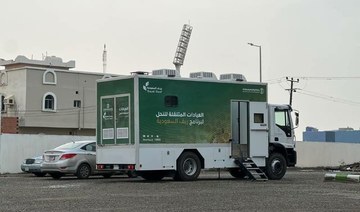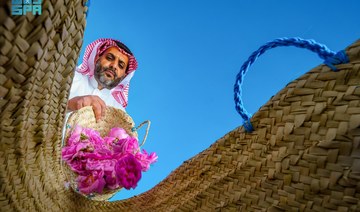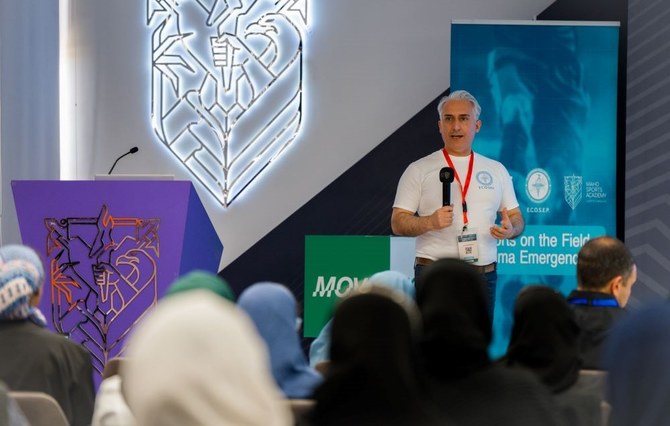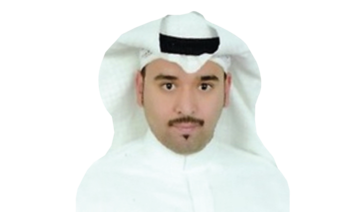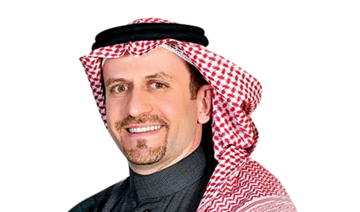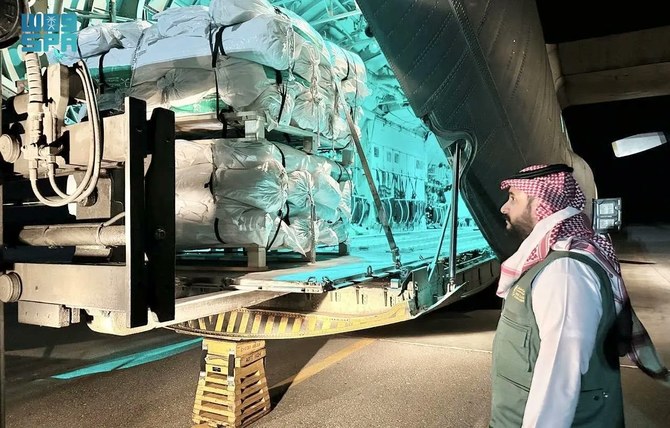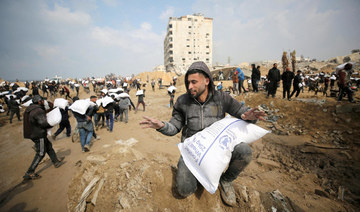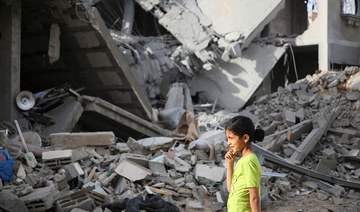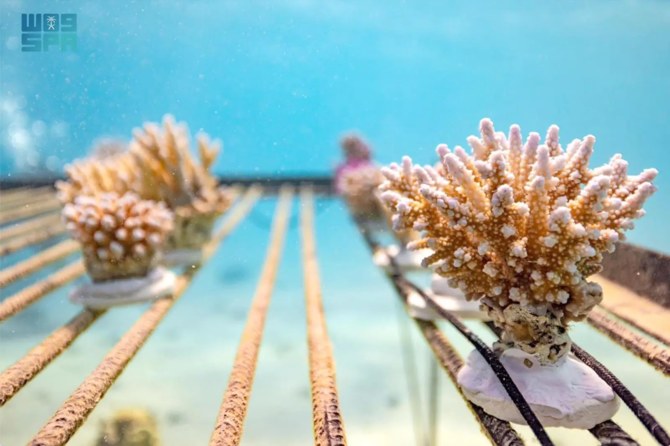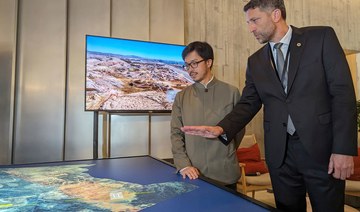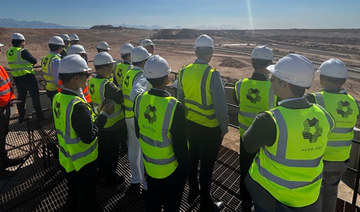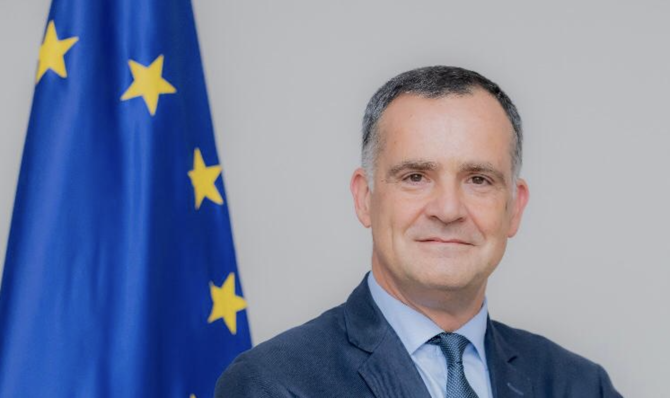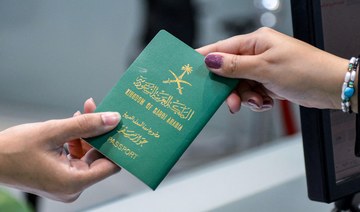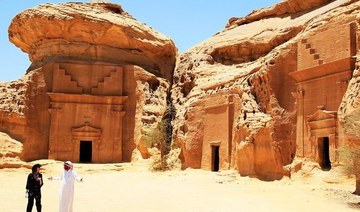For years detained Saudi cleric Awad Al-Qarni, this week’s preacher of hate, used TV interviews to glorify terrorism, spread conspiracy theories and launch tirades against the West.
His radical views and dogmatic interpretation of religion was criticized in the Saudi press, on social media and by scholars.
But that did not shake his many firm convictions, one of which was that the fight against terrorism was “fabricated” by the West to colonize the East and destroy its way of life.
Born in 1957 and raised in Balqarn governorate in Saudi Arabia’s southwestern Asir region, Al-Qarni went on to serve as a professor at Imam Muhammad ibn Saud Islamic University.
There, long before the emergence of social media, he managed to misguide a large number of followers with his politically charged rhetoric delivered via mosque sermons and after-school programs for youths in the city of Abha.
“Despite the West’s claims of peace since the founding of the League of Nations, and subsequently the UN, the Security Council and organizations everywhere, humanity hasn’t suffered from war, destruction, colonialism, enslavement, confiscation of wealth, intervention in the affairs of nations and peoples, control over their capabilities and wealth, and the overthrow of their regimes and governments, as they suffered in the time of the domination of the West and the time of the Security Council,” Al-Qarni told the anchor of the program “Al-Malaf” on Al-Majd satellite TV channel in January 2017.
CONSPIRACY THEORIES OF AL-QARNI
The “war on terror”
• “It is one of the tools of the West through which it establishes a new era of colonialism, domination, exploitation and enslavement of peoples as much as it can, without a doubt.”
• “We’re living the biggest lie history has ever known. Many Third World leaders understood these facts and talked about them. Many realized them but few talked about them, like (Nelson) Mandela, (Fidel) Castro, Ahmadu Bello in Nigeria and King Faisal. Therefore, they were assassinated or there were attempts to assassinate them, or they became prisoners or fugitives.”
9/11
• “It’s in the West’s interest for (terrorism) to continue. This terrorism doesn’t pose an existential threat to the West and its countries. Three-thousand Americans were killed in a certain operation. All the accumulated evidence proves that the operation was premeditated, fabricated and calculated. ... In a nutshell, it’s in the West’s interest for terrorism to continue in Islamic countries so it can exploit and utilize it.”
Modernism
• “One of the ideas that has plagued the nation ... is an intellectual doctrine that seeks to destroy everything that is inherited, eliminate everything that is old and revolt against ethics, values and beliefs. This doctrine is called by its preachers and servants of its idols modernism.”
In Al-Qarni’s view, the war on terror is “one of the tools of the West through which it establishes a new era of colonialism, domination, exploitation and enslavement of peoples as much as it can, without a doubt.”
Qainan Al-Ghamdi, a Saudi political analyst, told Arab News that Al-Qarni’s arguments reflect the thinking of the Muslim Brotherhood, whose followers believe that the “West will stop meddling in the affairs of the Middle East only when it’s burned by terrorism.
“They’re certain that any campaign against terrorism threatens their plans and projects.”
That is why these preachers of hate instigated young men to go to warzones in the Middle East, Al-Ghamdi said.
“They did all that they could, through persuasion and offers of financial support, to get young men to travel to warzones and get themselves killed,” he added.
“They think that through this process, the region will end up being only for (the Brotherhood’s followers), so they can achieve their goal of seizing political power.”
Al-Qarni’s vehement opposition to the anti-terror campaign is unsurprising given that he considers Western culture and thought as racist, and based on the rejection or enslavement of the other.
“It runs in their (Westerners’) blood, no matter how they try to deny it. There’s no doubt that there are a number of thinkers, philosophers, reformers and some social strata who tried to be human … But the mainstream of Western thought and culture, represented or served by politicians who try to win them over, is a racist and exclusionary thought that seeks to eliminate others,” the detained cleric said.
“Their dealings with the Red Indians, the indigenous peoples of Australia and New Zealand, the African and Muslim peoples are clear.”
In his 1998 book “Modernism in the Balance of Islam: Islamic Perspectives in Literary Modernism,” Al-Qarni identifies modernity as an imminent threat to Muslims.
“One of the ideas that has plagued the nation … is the intellectual doctrine that seeks to destroy everything that is inherited, eliminate everything that is old and revolt against ethics, values and beliefs,” he wrote.
This doctrine, he said, is called “modernism by its preachers and servants.”
From Al-Qarni’s perspective, “modernism” is an idea that creates great and irreparable damage, and should therefore be resisted.
“Modernism is a subversive idea. The modernists present a destructive vision of the lives of people that includes all its aspects,” he wrote.
“The term ‘modernism’ is an invasion that must be confronted. The basis of modernism is reason and rationality that reject everything that the mind does not perceive.”
As a corollary, Al-Qarni said, modern literary works could lead mankind to believe in falsehoods that aim to destroy Islamic teachings.
Three years after his polemic against modernity was published, Al-Qaeda carried out the Sept. 11 attacks against the US, which left nearly 3,000 people dead and 6,000 injured, and caused damage estimated at $10 billion.
Al-Qarni said the attacks were “fabricated” — the West was exploiting terrorism in Islamic countries for its interest.
In another interview on Al-Majd TV, the detained Al-Qarni declared that the West wanted terrorism to remain, especially because “it doesn’t threaten” Western countries.
“It’s in the West’s interest for (terrorism) to continue. This terrorism doesn’t pose an existential threat to the West and its countries,” he said.
“Three-thousand Americans were killed in a certain operation (9/11). All the accumulated evidence proves that the operation was premeditated, fabricated and calculated.”
Al-Qarni is of the view that terrorist attacks inside the Kingdom are a way for them to claim their ‘right’ to establish control over the country. Power is their goal.
Al-Qarni asserted that it was not he who was making the claim. “Noam Chomsky said this, and recently a Western scientific engineering institute said the (twin) towers were toppled by a controlled explosion,” Al-Qarni said, falsely attributing the conspiracy theory to the American linguist and social critic.
“It’s in the West’s interest for terrorism to continue in Islamic countries so it can exploit and utilize it.”
Al-Ghamdi said such views are unsurprising given that Al-Qarni believes that acts of violent extremism by Muslims, whether in Saudi Arabia or abroad, are not really terrorism.
“Al-Qarni is of the view that terrorist attacks inside the Kingdom are a way for them to claim their ‘right’ to establish control over the country. Power is their goal,” he said.
Al-Ghamdi added that Al-Qarni’s antipathy toward the Saudi legal system, among other institutions, is rooted in the Brotherhood’s political philosophy.
“Even though they don’t publicly say it, followers of the Brotherhood don’t recognize the Saudi judiciary,” Al-Ghamdi said.
“Their deviant thoughts and hate-filled views are in sharp contrast to our country’s fair and unbiased laws and regulations.”
In March 2017, Al-Qarni was fined SR100,000 ($27,000) and banned from writing by Riyadh’s Specialized Criminal Court, which handles terrorism cases.
He was convicted for spreading content on Twitter that “could jeopardize public order and provoke public opinion.” However, his political commentary became even more outrageous and provocative.
In September 2017, along with fellow hate preachers Salman Al-Odah and Ali Al-Omari, Al-Qarni was arrested.
Among other accusations, evidence was presented showing that Al-Qarni was funding the Brotherhood and other extremist jihadist groups in Egypt’s Sinai Peninsula.



